Music History Beyond State Borders: Micro-, Meso-, and Macro-Regionality of Musical Culture
October 29–31, 2024, Vilnius
Lithuanian Academy of Music and Theatre (Vilnius, Lithuania).
Call for Papers
International Baltic Musicological Conference
Organizers: Lithuanian Academy of Music and Theatre; IMS Study Group Music and Cultural Studies
Keynote speakers
Prof. Jörg Hackmann, Professor of History, International Center for Interdisciplinary Studies in Kulice, University of Szczecin
Dr. Rasika Ajotikar, Junior Professor of Ethnomusicology, Institute for Music and Musicology|Center for World Music, University of Hildesheim
Dr. Tatjana Marković, Associate Professor of Musicology, Austrian Academy of Sciences|IMS Study Group “Music and Cultural Studies”
Area studies are focused on specific geographic territories or specific cultures. This interdisciplinary research includes geography, history, sociology, political science, literature, linguistics, and gradually entering musicology. The still dominant concept of music history is based on nationalism, that is, today’s state borders and moreover, the ethnic majority. The aim of this conference is to broaden the mentioned concept by stepping beyond the state borders, focusing on geographically and culturally determined micro-, meso-, and macroregions through history. Furthermore, the inclusion of different kinds of minorities, as well as imperial (Byzantine, Ottoman, Russian, British, French and others) and political legacies (communist, socialist) would be of significance. In order to overcome the traditional (Western) centre versus periphery division, and the strictly determined historical regions, the temporarily centres would be placed anywhere where the area studies are focused.
A mesoregion is defined as ‘connected by time that crosses the boundaries of a state, society, nation, and civilization’ (Troebst). The term ‘mesoregion’ designates a group of several states forming a region – for instance, the Baltic region, the Balkans, or the Middle East – in historical terms and in political terminology. A mesoregion is different from a microregion (a subnational unit), and also from a macroregion (a continent: Africa, Asia, Latin America). Mesoregion as a relative category in the framework of conceptual history and ‘as the premises of its social production, its ideological underpinnings, as well as the various forms of interpretation and representation that it embodies’ (Mishkova and Trencsényi). Additionally, the micro- and mesoregional perspective can be different from outside and within the areas through the reception of a given musical culture and its self-representation. This approach would provide a profound insight into sub- and supraregional facets of cultural and musical life and the network of overlapping regional cultural and musical traditions.
The conference is therefore not limited to specific regions and cultures, but encourages the perspectives and exchange across the boundaries of cultures, regions and disciplines. The programme committee encourages submissions within the following areas, although other topics are welcome:
micro regional musical culture as an identity signifier;
mesoregional music history or opera beyond the state border;
network of music institutions within a meso- and macro region;
supranational macro- or mesoregional history of music;
cross-cultural transfer within a mesoregion or among different mesoregions.
Conference convenors: Rūta Stanevičiūtė, Tatjana Marković
Programme committee: Antonio Baldassarre, Zdravko Blažeković, Tatjana Marković, Lina Navickaitė-Martinelli, Rima Povilionienė, Rūta Stanevičiūtė (Chair)
Conference coordinator: Zita Abramavičiūtė-Mučinienė
Submission
The conference language is English. There will be two options: individual papers and panels (of 3 or 4 presenters).
Papers
We invite abstracts of no longer than 300 words, including five keywords and an optional list of references (max 10). Individual paper presentations are 20 minutes long to be followed by 10 minutes of discussion.
Panels
The panel organizer should submit the panel abstract and all individual abstracts (200 words each) in one document, with a full list of participant names and email addresses.
Please submit proposals as a doc/odt/rtf attachment to mokslas@lmta.lt by 15 May 2024. The following format should be used:
Name, affiliation and contact email address
Type of presentation (select one from: panel, individual paper)
Title of presentation
Abstract (300 words maximum; in the case of panels, include a general abstract followed by individual abstracts, in total 1200 words maximum)
Keywords
CV (100 words maximum; in case of panels, CVs of all participants)
Accepted speakers will be informed by 15 June 2024. The conference registration fee – 30 EUR (student registration fee – 15 EUR). It includes conference material, coffee breaks and conference reception. Information about registration and accommodation will be sent after acceptance of proposals. The organisers will invite the students and early career scholars accepted to present at the Baltic Musicological Conference to apply for travel grants to support their travel to the conference, incl. airfare and lodging. Award amounts will depend on the number of applications received and travel distance awardees.
The selected papers will be invited for publication in the international peer-reviewed scientific journal “Lithuanian Musicology” (indexed in SCOPUS, EBSCO, RILM, ERIH PLUS). The conference organisers look forward to receiving your submissions!
Contact e-mail: Zita Abramavičiūtė-Mučinienė
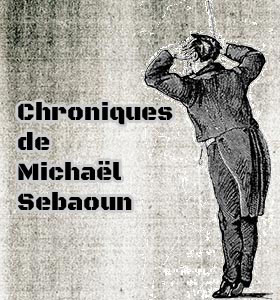
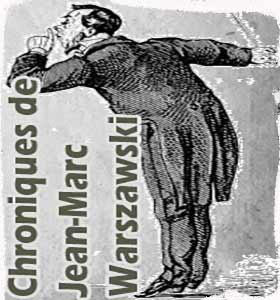
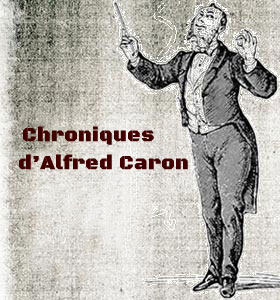
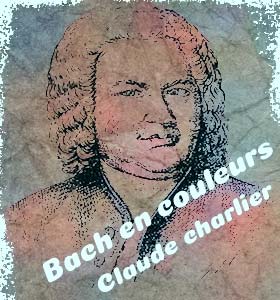
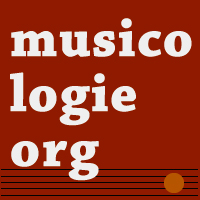 À propos - contact |
S'abonner au bulletin
| Biographies de musiciens | Encyclopédie musicale | Articles et études | La petite bibliothèque | Analyses musicales | Nouveaux livres | Nouveaux disques | Agenda | Petites annonces | Téléchargements | Presse internationale | Colloques & conférences | Collaborations éditoriales | Soutenir musicologie.org.
À propos - contact |
S'abonner au bulletin
| Biographies de musiciens | Encyclopédie musicale | Articles et études | La petite bibliothèque | Analyses musicales | Nouveaux livres | Nouveaux disques | Agenda | Petites annonces | Téléchargements | Presse internationale | Colloques & conférences | Collaborations éditoriales | Soutenir musicologie.org.
Musicologie.org, 56 rue de la Fédération, 93100 Montreuil. ☎ 06 06 61 73 41.
ISSN 2269-9910.

Jeudi 28 Mars, 2024

 28 mars 2024
28 mars 2024